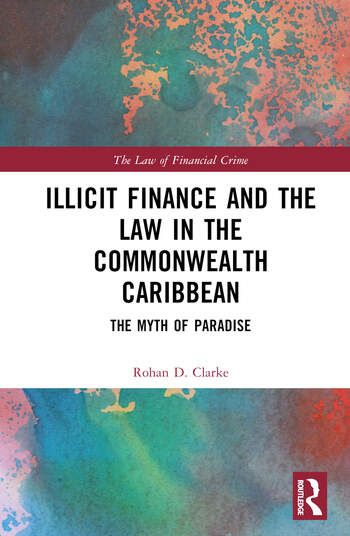
This book provokes fresh ways of thinking about small developing States within the transnational legal order for combating money laundering and the financing of terrorism and proliferation (TAMLO).
From the global wars on drugs and terror to journalistic exposés such as the ‘Paradise’, ‘Panama’ and ‘Pandora’ Papers, the Commonwealth Caribbean has been discursively stigmatised as a mythical island paradise of ‘rogue’ States. Not infrequently, their exercise of regulatory self-determination has been presented as the selling of their economic sovereignty to facilitate shady business deals and illicit finance from high-net-worth individuals, kleptocrats, tax-dodgers, organised crime networks and terrorist financiers. This book challenges conventional wisdom that Commonwealth Caribbean States are among the ‘weakest links’ within the global ecosystem to counter illicit finance. It achieves this by unmasking latent interests, and problematising coercive extraterritorial regulatory and surveillance practices, along the onshore/offshore and Global North/South axes.
Interdisciplinary in its outlook, the book will appeal to policymakers, regulatory and supervisory authorities, academics and students concerned with better understanding legal and development policy issues related to risk-based regulatory governance of illicit finance as well as those arising from money laundering related to corruption, politically exposed persons (PEPs), offshore finance and offshore Internet gambling services.